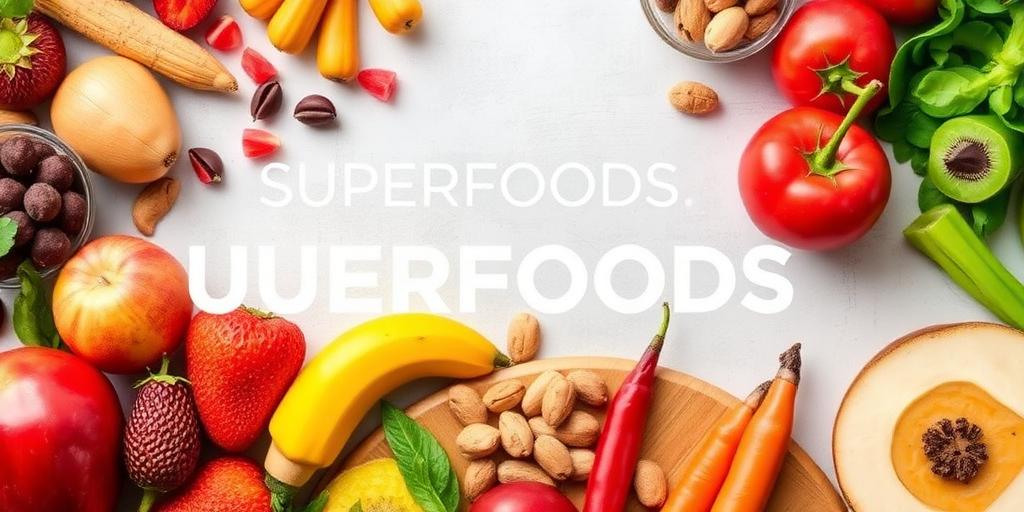Superfoods: Hype vs. Reality
In recent years, the term "superfood" has exploded in popularity, appearing on everything from health blogs to product packaging. But what exactly is a superfood? Are these nutrient-rich foods truly deserving of their title, or is it just clever marketing? Let's delve into the science and separate fact from fiction.
What Defines a Superfood?
Unlike terms like "organic," "superfood" lacks a formal definition. Generally, it refers to foods that are exceptionally nutrient-dense and offer potential health benefits beyond basic nutrition. These benefits often include antioxidant and anti-inflammatory properties.
The Usual Suspects
Some foods frequently touted as superfoods include:
- Berries: Blueberries, strawberries, raspberries, and cranberries are rich in antioxidants.
- Leafy Greens: Spinach, kale, and collard greens are packed with vitamins, minerals, and fiber.
- Nuts and Seeds: Chia seeds, flaxseeds, almonds, and walnuts provide healthy fats, protein, and fiber.
- Green Tea: Contains antioxidants called catechins, linked to various health benefits.
- Fatty Fish: Salmon, tuna, and mackerel are excellent sources of omega-3 fatty acids.
The Science Behind the Claims
Many studies support the health benefits associated with these foods. For instance, the antioxidants in berries can help protect against cell damage caused by free radicals. The omega-3 fatty acids in fatty fish are known to support heart health and brain function. Leafy greens provide essential vitamins and minerals that contribute to overall well-being.
However, it's important to note that most research is conducted in vitro (in test tubes) or on animals. Human studies are often smaller and may not always yield the same results. Additionally, many superfoods are studied in isolation, whereas people consume them as part of a varied diet.
Hype vs. Reality
Here's where things get tricky. While superfoods offer undeniable nutritional value, it’s misleading to think they are a magic bullet for health. No single food can compensate for a poor diet or unhealthy lifestyle. Relying solely on superfoods while neglecting other aspects of health can lead to a false sense of security.
Furthermore, the term "superfood" can drive up the price of certain foods, making them less accessible to everyone. It also creates a hierarchy of foods, implying that some are superior to others, which isn’t necessarily true.
A Balanced Approach
The key to good health is a balanced diet that includes a variety of nutrient-rich foods. Focus on whole, unprocessed foods from all food groups, including fruits, vegetables, whole grains, lean proteins, and healthy fats. Think of superfoods as a valuable addition to your diet, rather than a replacement for other essential nutrients.
Practical Tips
- Diversify your diet: Include a wide range of fruits, vegetables, and other nutrient-rich foods.
- Don't rely solely on superfoods: Focus on overall healthy eating habits.
- Read labels carefully: Be wary of products that heavily market superfoods while being high in sugar, salt, or unhealthy fats.
- Enjoy superfoods as part of a balanced meal: Add berries to your oatmeal, spinach to your smoothie, or chia seeds to your yogurt.
Conclusion
Superfoods can be a valuable part of a healthy diet, but they are not a magical solution. By understanding the science behind the claims and taking a balanced approach to nutrition, you can make informed choices that support your overall health and well-being. Remember, a diverse and well-rounded diet is the true key to optimal health, with superfoods playing a supporting, rather than starring, role.









